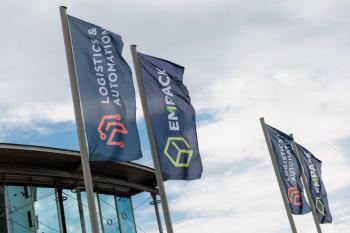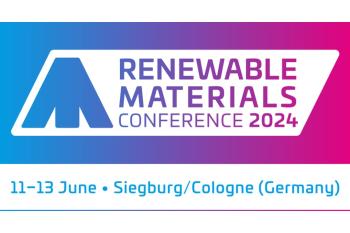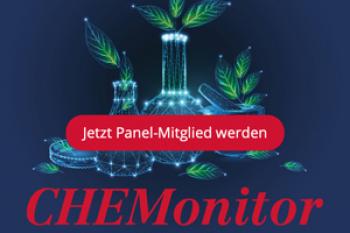Supply Chain Skills Gap
Identifying, Developing and Retaining Talent
The Right Stuff - As the complexities of our supply chains have evolved, so have the complexities of the competencies required for effective supply chain leaders. Supply chain leaders can no longer simply be "specialists" within a supply chain field. Although specific roles still exist within the supply chain function for specialists, the role of a leader can no longer be only a supply-chain specialist. The competencies required today are truly a broad, diverse and dynamic mix, and difficult to find in one person. This makes the search for supply chain talent and leadership even more challenging.
In addition to the key leadership qualities of vision, strategic thinking, and development of people and teams, the broad set of competencies include:
- Dealing with uncertainty and thriving during constant change.
- Analyzing information, scenarios, and potential risks enabling executable plans.
- Linking strategic decision making with execution
- Seeing the big picture
- Effectively communicating with many levels
- Continually mastering new skills, processes, and technologies
- Possessing and cultivating business acumen
- Possessing and leveraging financial acumen
- Bridging functional requirements across the organization
- Understanding, meeting and exceeding customer needs
These competencies, by the way, are the same ones that can be found on a résumé for C-level positions today.
The Challenge
How do we find talent with this complex mix of competencies that is interested in spending time in the supply chain function? Most people don't have all of these when they are born. They don't get them from an MBA or logistics classes, from specializing in a field or function, from working in different functions, businesses, or countries. If they don't get these from doing one of the activities above, how do they get them? Organizations must be able to help talent develop the complex mix of competencies by proactively identifying a plan that includes many or all of the activities above.
If it takes this range of experiences and investment to build a complex set of competencies, then how do we do this? What does it take to promote and establish the infrastructure across an entire organization? If you do agree to invest in the time and process to make this work, how do you know it is working? What does retention really mean? How does this provide a competitive advantage? These questions go on and on...
It starts by having the business case to convince your organization that supply chain is an important role and an important function for your key talent to spend time. Senior leadership has to understand the necessity of this role in the development of company leaders. Let's put in the investment to build this infrastructure and to let talent spend meaningful time in supply chain along their development path.
Next, the organization must foster an environment that promotes a sustainable development planning process. The environment should drive full engagement across managers and associates, not just one that includes engagement by only the few that believe. One that demonstrates an effective process will help lay out the right paths, build the right skills, share the strengths, improve the weaknesses, and does all of this around the complex mix of competencies. The environment must promote self-advocacy. It continually should strive to move the culture towards encouraging people to venture from the norm, think differently about career paths, to speak up regarding what they want to do and where they want to go. Future leaders are willing to speak up, learn and change in order to grow personally and professionally.
Keeping Talent in the Company
The goal of retaining in this model is to keep talent in the company, not necessarily in the supply chain function. As long as you have the infrastructure in place so people can move in and out as part of a bigger plan, you will always have a wealth of talent, not only in the supply chain, but also in your middle and senior level pipeline. Retaining can serve as a competitive advantage to the company by allowing a network of talent to develop that understands the needs of the customer from many perspectives. Among other things, these people may have produced material for the customer, sold to the customer, invented for the customer, or serviced the customer. The result is stronger customer relationships and better insights that are brought to the supply chain role and many other roles within the company. Retaining talent yields an efficient, credible, internal cross functional group speaking the same language with a stronger skill set. The result is talent that can move your organization forward faster in finding new, innovative solutions and products.
In non-chemical companies today, supply chain leaders are being promoted to C-level positions. In a typical chemical company, this concept has been more difficult to implement. Historically, chemical companies live in a world where the people inventing and selling are seen as the "value-add." R&D leaders have more commonly been promoted to C level. Rarely were CEOs once a supply chain leader. I am part of a chemical company and during the first years in my role, I accepted working behind the scenes as "support." As the challenges increased and the competencies required expanded, I knew we would not be able to reach our vision for talent needs if we did not start to look at the supply chain role and how we develop talent differently. We've made some progress, but challenges still remain in our organization today.
Where is your company on this journey? Have a look at the box below. 
If most of your answers were on the left side of the arrow, then you will have challenges finding talent in your Supply Chain organization (and your senior level positions). If most of your answers are on the right side, then you should be ahead of the game on finding and developing supply chain talent. Most of us find ourselves somewhere in the middle and should continue pushing towards the right to identify, develop and retain tomorrow's supply chain talent.
Kontakt
Milliken Chemical
S.C. 29304-1927
Spartanburg
+1 864503 2546
+1 864503 2430













